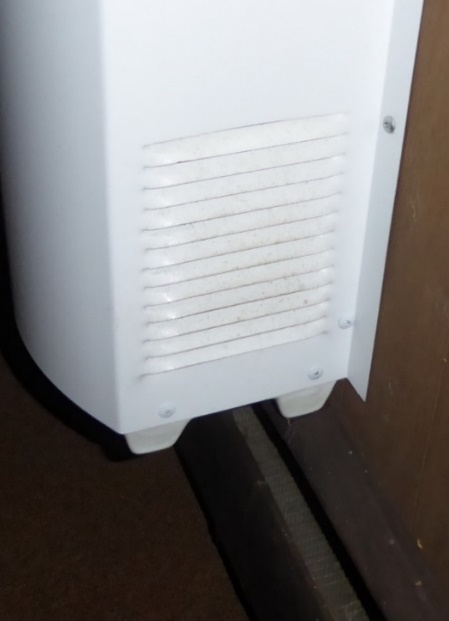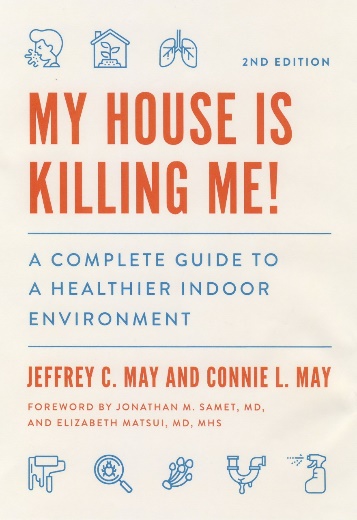IAQ IQ, Spring/Summer 2024
©2024 Jeffrey C. May
Humid weather is heading our way, so it will be important for people to control the relative humidity (RH) in their below-grade spaces.
As air cools, its RH rises. Below-grade spaces are naturally cool and damp and thus are prone to developing elevated RH conditions. Many kinds of mold including allergenic Aspergillus and Penicillium species can flourish when the RH is over 80%. The RH in air that is in contact with cool, concrete surfaces often reaches these levels. This is why mold growth can occur in exterior corners near the floor in unfinished basements.
A fan-only, basement “dehumidifier” is supposed to draw drier air from above-grade rooms down into the basement, thus helping to reduce the relative humidity in the space. People fall for the “pitch,” because of the reviews on-line in which people report that their basements no longer smell musty. This is true, because the air is being exchanged, but it does not mean that the basement is less humid. If the bulkhead and/or basement windows are not airtight, air can be drawn into the basement from the exterior, and in humid weather, that air contains moisture. If the air is being drawn into the basement from above-grade rooms, that air may contain moisture if it comes from a moist kitchen or if the house is not being air conditioned or dehumidified in the humid season (in New England, generally between mid-April and mid-October). Then moisture can condense on cool surfaces and fuel mold growth, even on a fan-only device.

The use of a basement fan-only device may also increase energy usage and costs. If the air above grade is being air conditioned, cool air will be drawn down into the basement, and then humid, exterior air will be drawn into above-grade rooms. As a consequence, it may take more energy to air-condition those rooms, potentially negating any energy and cost savings as compared to the energy usage and costs associated with the use of a refrigerant-based dehumidifier.
Air will flow from higher pressure to lower pressure, so if air flows out of one space, air will flow into that space from adjacent spaces, which include the exterior.
As an indoor-air quality professional, I have other concerns about the use of fan-only “dehumidifiers”:
- If air is being drawn into the basement from the exterior, that air may contain irritants and allergens, such as vehicular exhaust products and mold spores from outdoor mold growth.
- These devices could also cause back-drafting of combustion products.
Case study: One basement contained two exhaust, fan-only “dehumidifiers.” The installer had the homeowner turn off the effective, refrigerant-based dehumidifier. The boiler had an automatic draft damper above the standard “bell” draft hood. The center of the damper plate had a one-inch hole in the center, which wasn’t adequate to remove all the combustion gases from the pilot light. The exhaust fan depressurized the basement and sucked the combustion gases into the basement, making the homeowner sick. The homeowner could get rid of the automatic damper or keep the damper and replace the pilot light with a spark ignition coil. She also had to get rid of that fan-only “dehumidifiers.” I encouraged her to try to get a refund for buying these devices.
A caution about running a refrigerant-based dehumidifier in a moldy basement: such devices create airflow. If there is mold growth in such a basement, spores will be aerosolized.
NEW! A LIST OF RESOURCES
Here are two websites that address the uphill battle home inspectors are facing because buyers are often dissuaded from having home-inspection contingencies in their offers, and the potential conflict of interest that results when buyer brokers are paid out of the listing-broker’s commission.
https://www.mkchomeinspection.com/posts/waiving-home-inspections-has-now-become-a-national-trend
For further discussion of basements and crawlspaces, see Chapter 15 of our latest book, Edition 2 of My House is Killing Me, available on line and published by Johns Hopkins University Press.

The photograph of the fan-only “dehumidifier” is the property of May Indoor Air Investigation and can only be used with permission. Jeff@mayindoorair.com.
